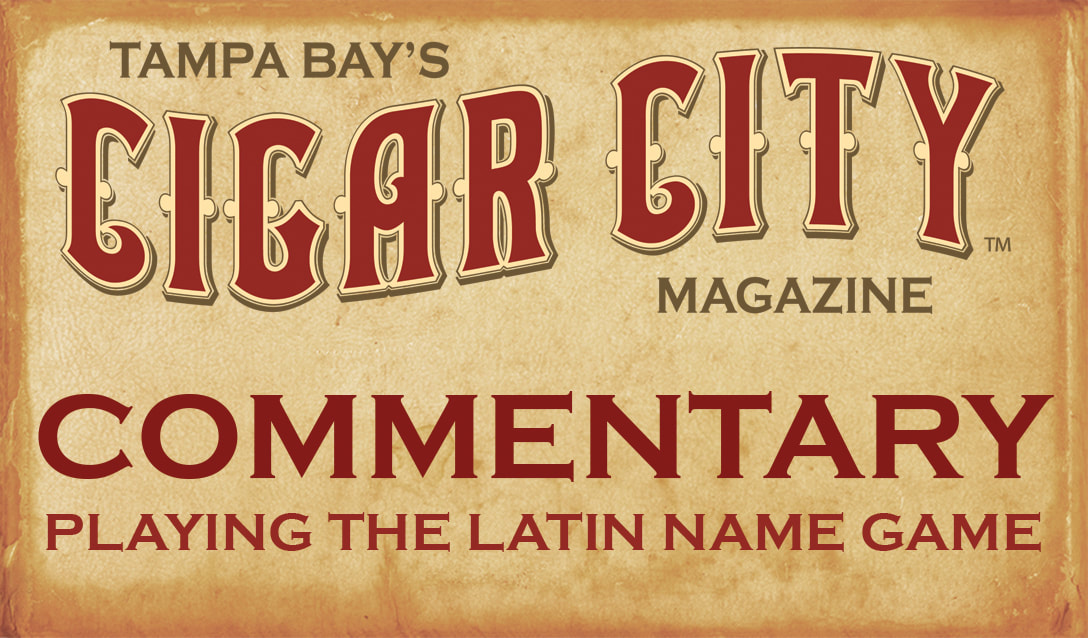|
Collectively, we're Latins. Ybor City Latins. West Tampa Latins. The Latin Community. We were here first. That's the deal. Newer immigrants–Dominicans, Mexicans, South and Central Americans–are arriving here daily, making Tampa one of the most diverse cities in the United States. Only, we don't call new immigrants Latins. In Tampa, that title is reserved. The Spanish, Cuban, and Italians who "Founded Ybor City" are the real Latins. Some people disagree with the term and who it includes. I spoke with a furious Italian woman the other day, someone's grandmother, no doubt. I could have easily mistaken her for my grandmother, her West Tampa accent making her pronounce the word cigar as SEE-gar and says "anywheres" instead of "anywhere." She called to tell me that I was all wrong about Ybor City. She wanted to tell me that, as far as she knew, Ybor was founded entirely by Italians. "More of them lived in Ybor than anyone else," she said. She called to proclaim that the Italians were being erased from Ybor's history. "All anyone talks about are the Cubans," she said, adding, "Now everyone down there is drunk," before hanging up on me. I took offense, especially since it was before noon, and I hadn't started drinking yet. She wasn't the first. I've gotten dozens of e-mails and phone calls from fist-shaking Nanas and Nanos, fearful that their Italian identity has been casually melded into the larger cultural brew. "We're not Latin; we're Italian," my mother says. And she's right: the word "Latin" is used in Tampa to broad-stroke several diverse ethnicities, and "Latin" is also how we imagine an entire era of Ybor City history. "Tampa's Historic Latin Quarter" is what it says on faded tourist brochures from the 1950s, at the expense of Jewish and German immigrants who lived and worked in Ybor in the early 20th century. Today's Spanish-speaking immigrants are, according to the official United States Census, "Hispanic," and, like the Tampa-specific term, "Latin," it's used to homogenize several diverse cultures. "Hispanic" is not the same as saying "Asian" because Asian at least references a specific geography. Where is "Hispanic"? In Tampa, there are the Hispanic Yellow Pages and the Hispanic Chamber of Commerce, but Hispaniola is an island occupied on one side by French-speaking Haitians and on the other by Spanish-speaking Dominicanos. Neither of those people calls themselves "Hispanic," just as no one in this country describes themselves as "North American." Geographically, there's "Latin America," but Tampa's Latins–formerly Cubans, Spaniards, or Italians–have no connection to that term or place. When the Ybor City Chamber of Commerce hosts a Gala announcing what they call "The Latin Social Season," they're talking about Latins from Tampa, not Hispanics from Latin America. It can get confusing. Rather than using the government-decreed term "Hispanic," newer immigrants and their second-generation offspring opt for the "Latino" moniker, which was added to the U.S. Census in 2000. This provides some autonomy from being lumped in, I suppose, with Cubans and Spaniards or Mexicans, who, not wanting to be marginalized either, often use the term Chicano. The important thing to remember is here in Tampa, Latino is not Latin. You should be clear on this point before you head down to La Tropicana (now gone) in Ybor City for a Saturday morning Café Con Leche or, for that matter, while you're getting your hair cut at WestSide Barbershop in West Tampa. Still, many self-described Tampa Latins use this term with pride. Calling yourself Latin means you lay claim to a specific era of Tampa's "Cigar City" history. It means you were here first. "I'm an Old School Latin from way back" is something my dad might say. My family is Italian; my dad grew up in West Tampa. The street where he was born, Cherry Street, was dotted with a mix of Italians, Cubans, and Spaniards. His father belonged to the Sons of Italy Lodge, made wine in the garage, and, when I was younger, Sundays brought with them the faint aroma of red sauce wafting down the street. But, somehow, my dad's Latin, too. I am still determining the origins of the term. No one can deny it's a proudly worn label, and I'm just not sure when the descendants of Ybor City's founding generation began collectively describing themselves as "Latins." I'm guessing, like "Hispanic," it's a term people outside the communities of West Tampa and Ybor used to describe an immigrant population about which they understood very little. They sounded like the tourists I spoke with the other day who wanted to know where all the Mexican restaurants in Ybor City were located. She became frustrated when I casually mentioned that Ybor is mainly Spanish and Cuban. "Mexican, Spanish, Cuban, whatever." CIGAR CITY MAGAZINE- SEPTEMBER/OCTOBER 2007 MANNY LETOManny Leto is the Executive Director for the Preserve the 'Burg in St. Petersburg, Florida. He also worked as Director of Community Outreach for the Ybor City Museum Society, then became the managing editor of Cigar City Magazine and Director of Marketing for 15 years with the Tampa Bay History Center. FOLLOW CIGAR CITY MAGAZINE
0 Comments
Your comment will be posted after it is approved.
Leave a Reply. |
Archives
June 2013
Categories
All
|
Cigar City is a Florida trademark and cannot be used without the written permission of its owner. Please contact [email protected]
© 2021 Cigar City Magazine. ALL RIGHTS RESERVED.
© 2021 Cigar City Magazine. ALL RIGHTS RESERVED.



 RSS Feed
RSS Feed